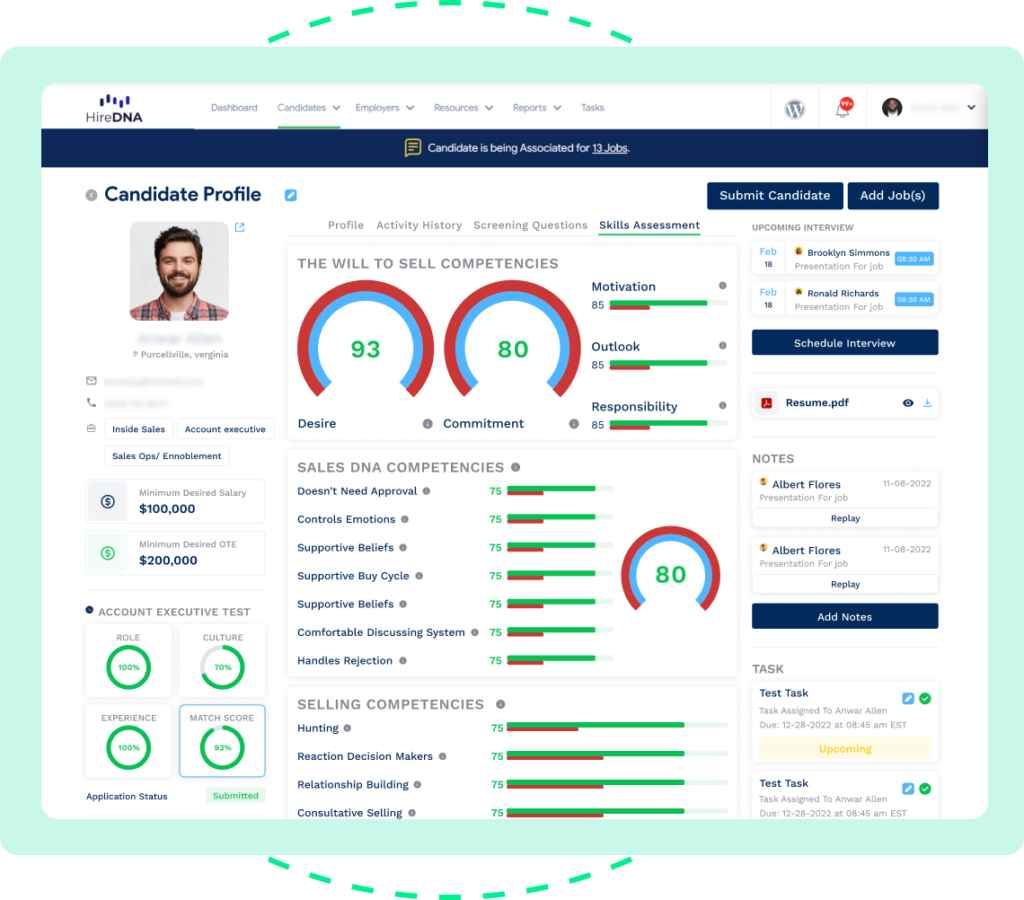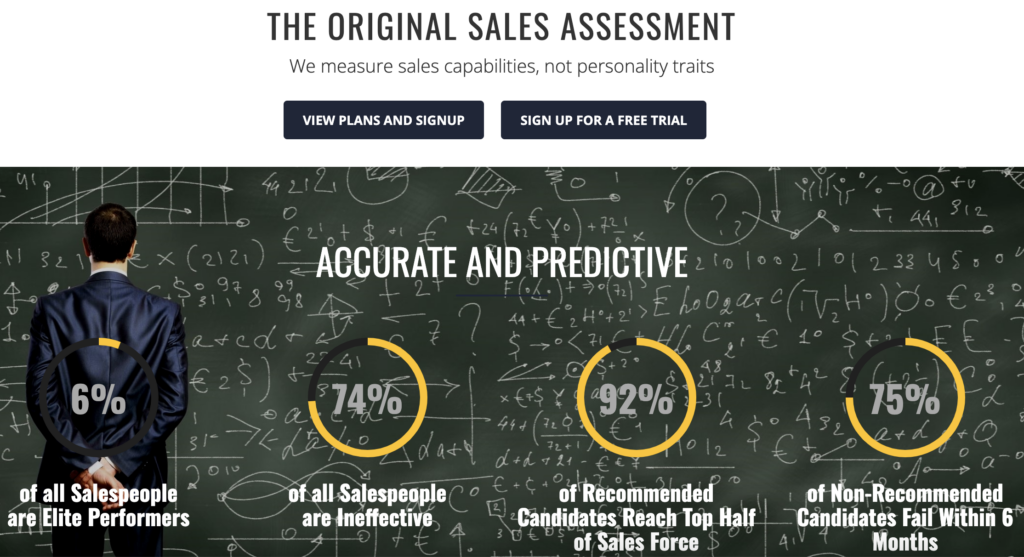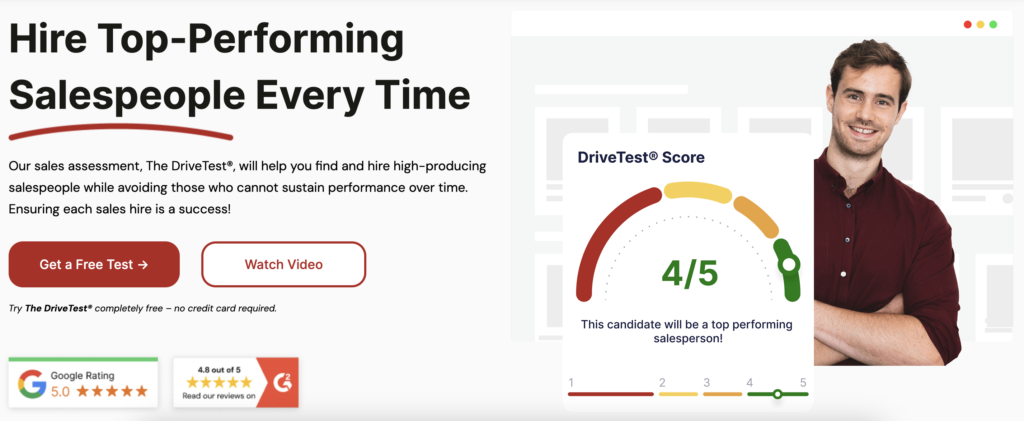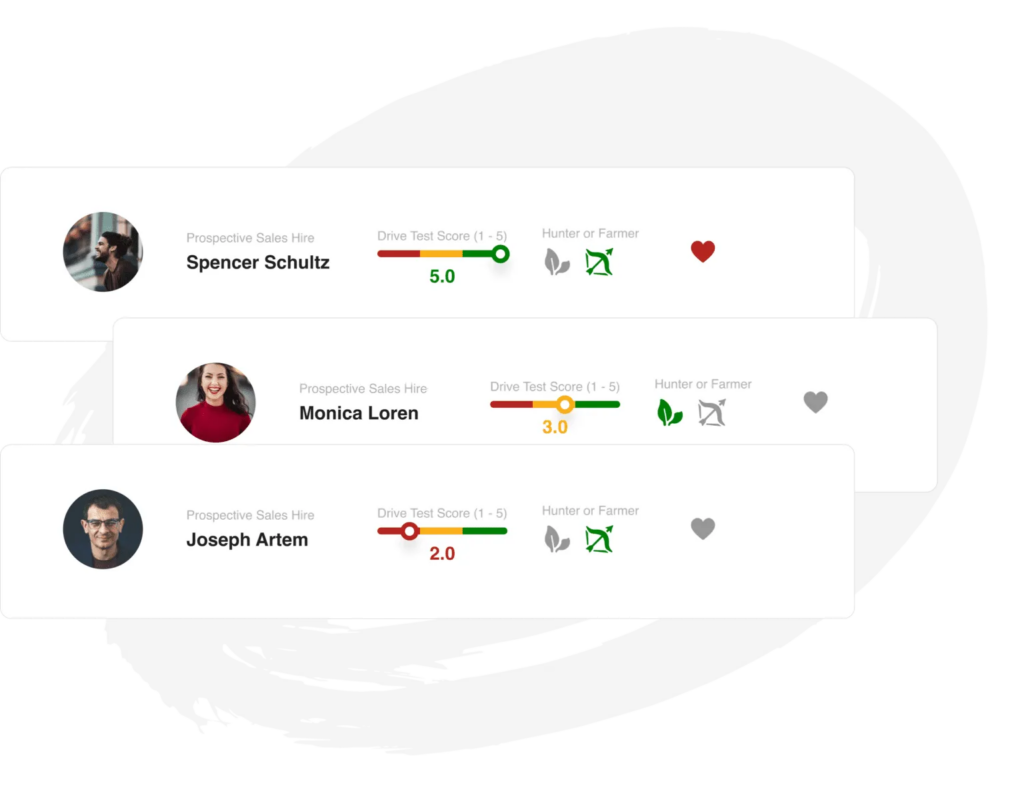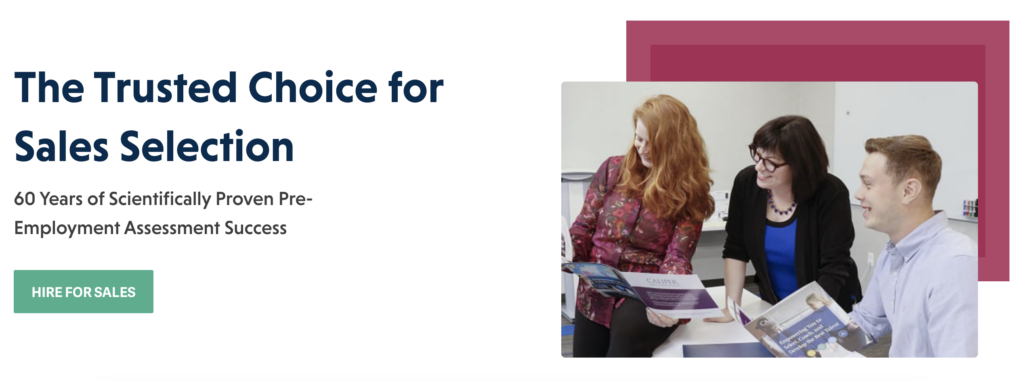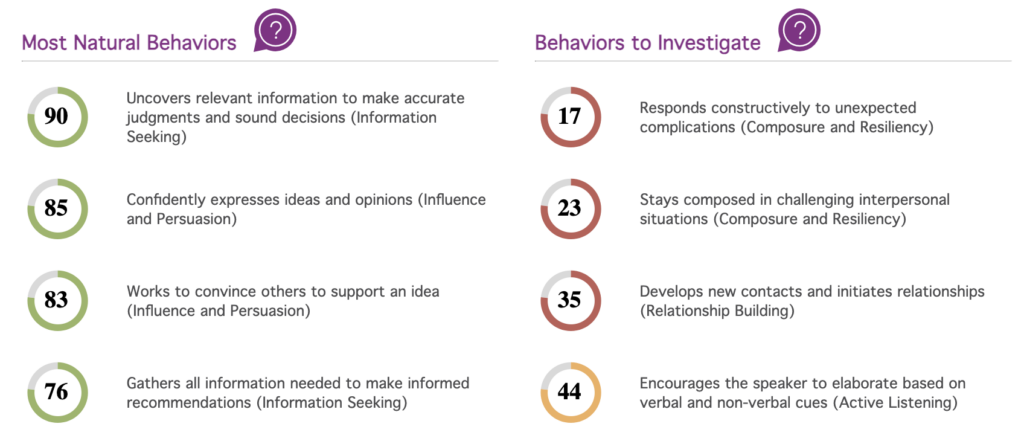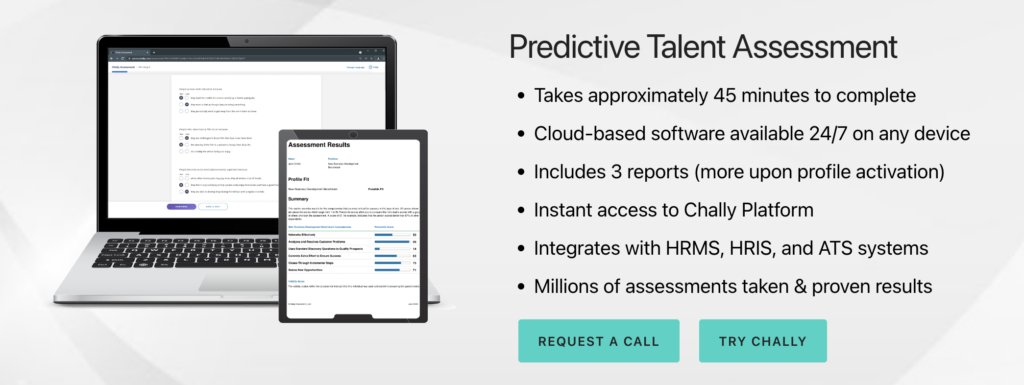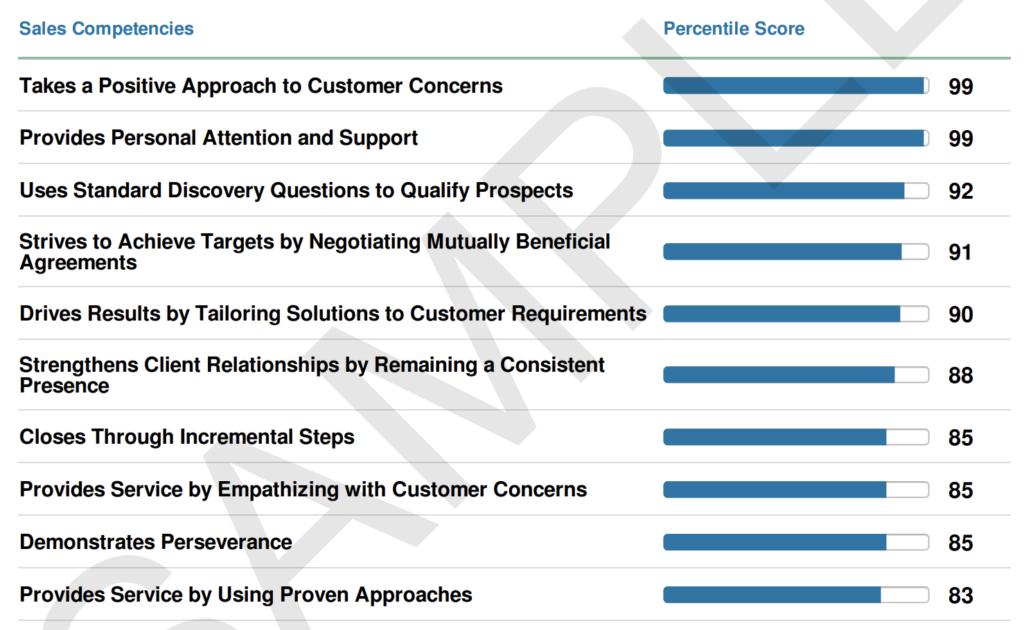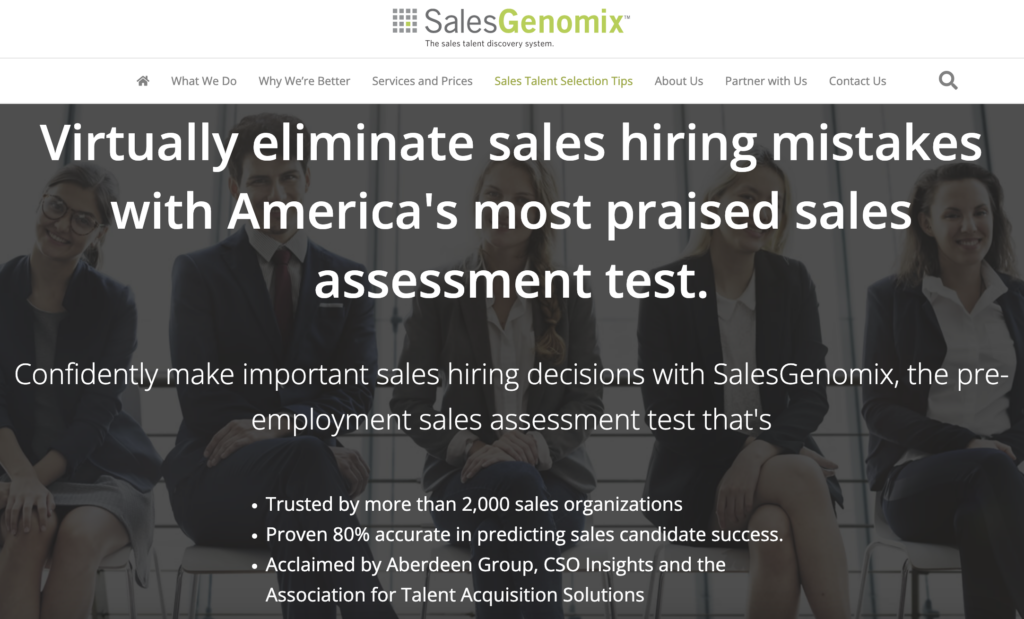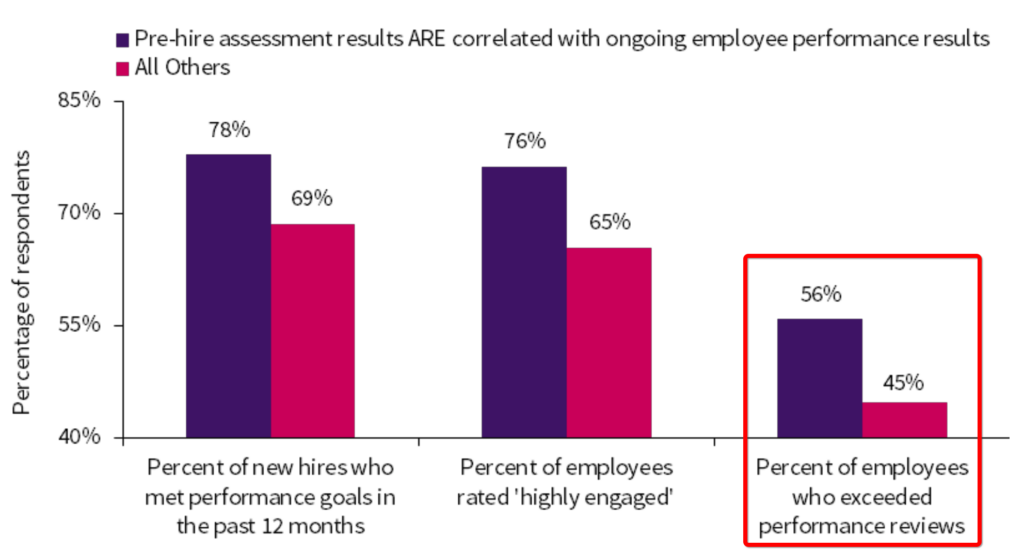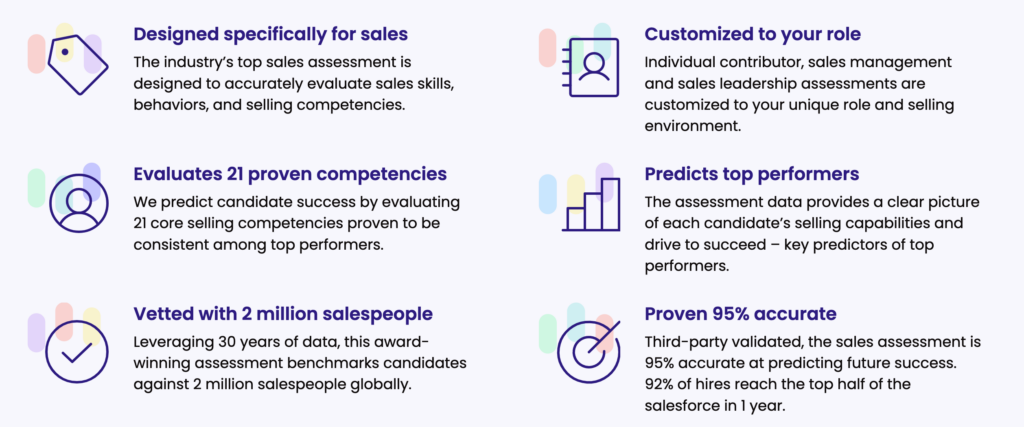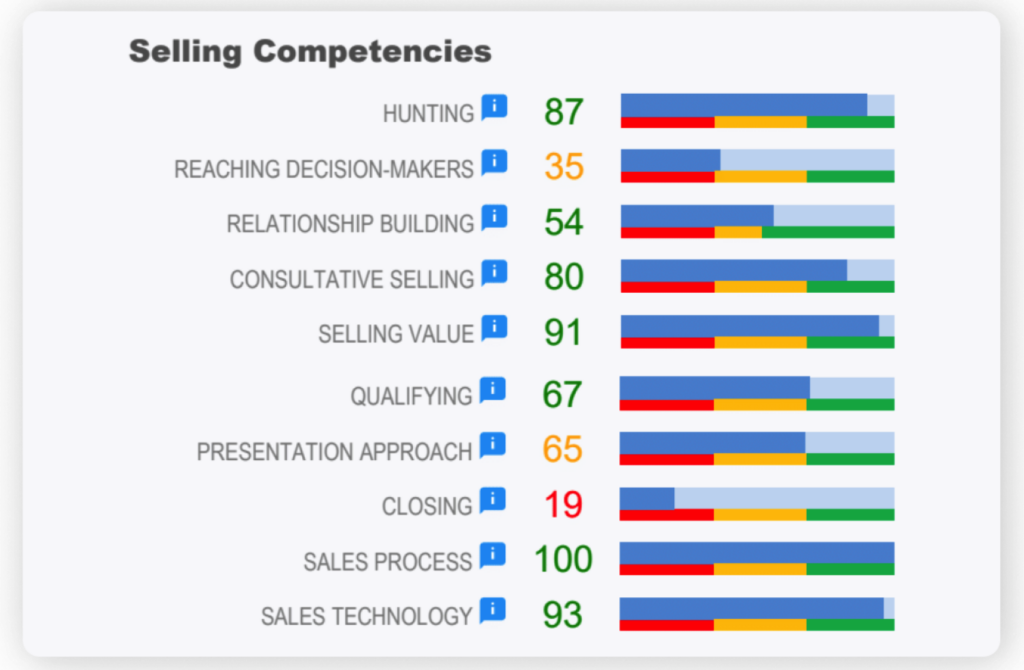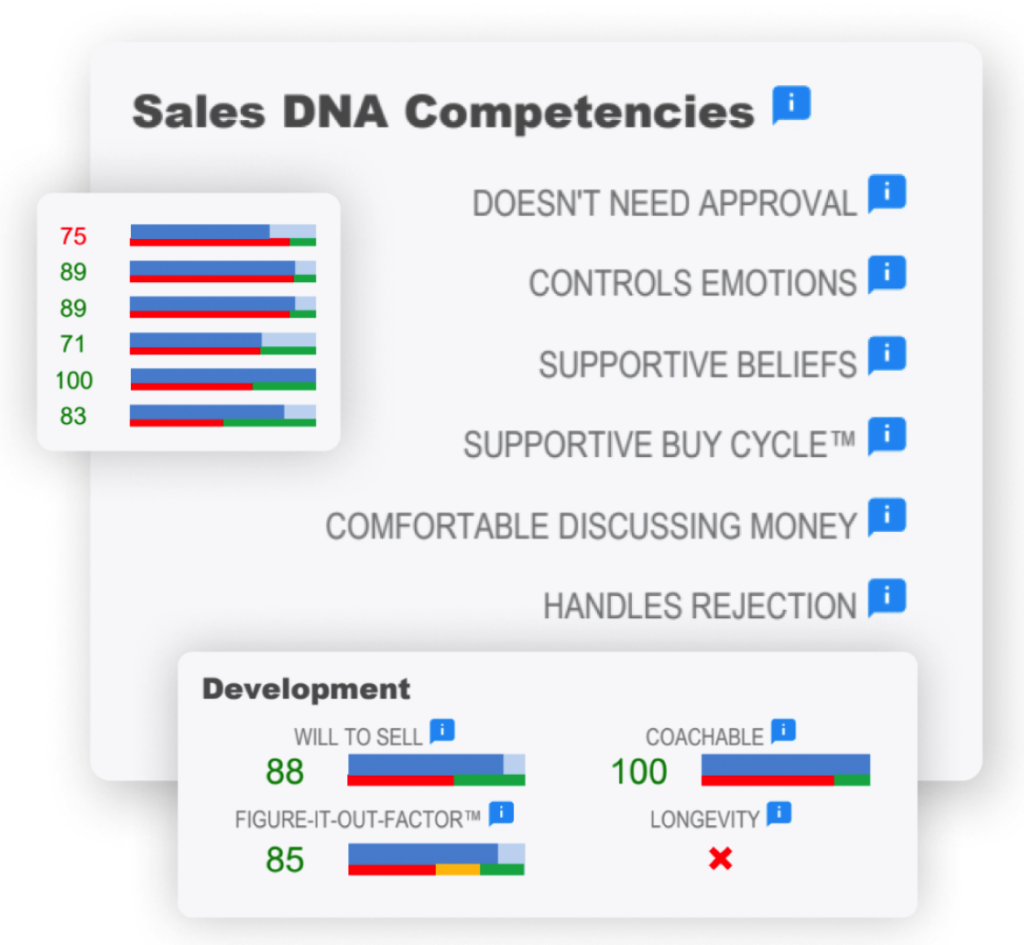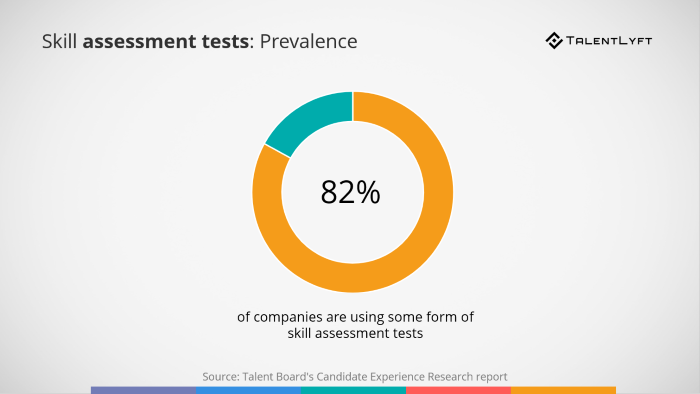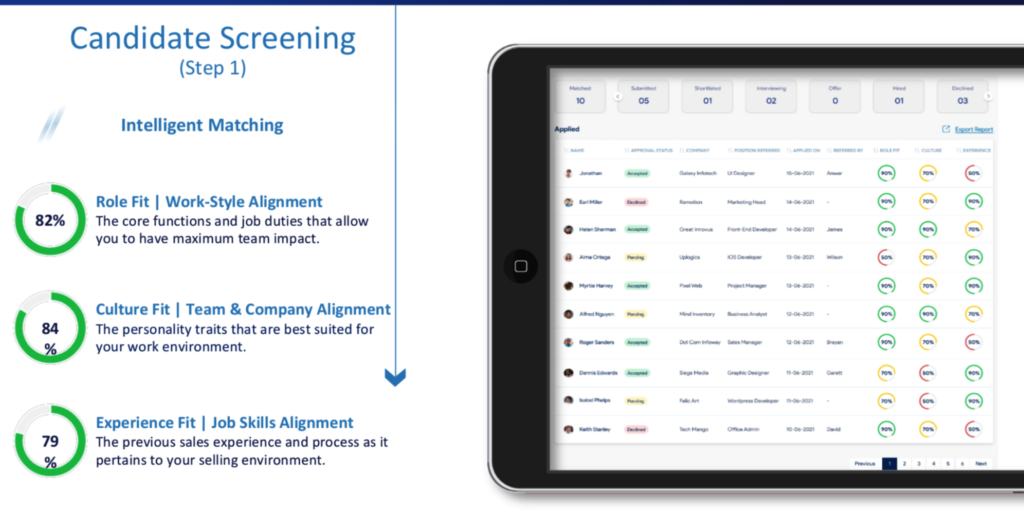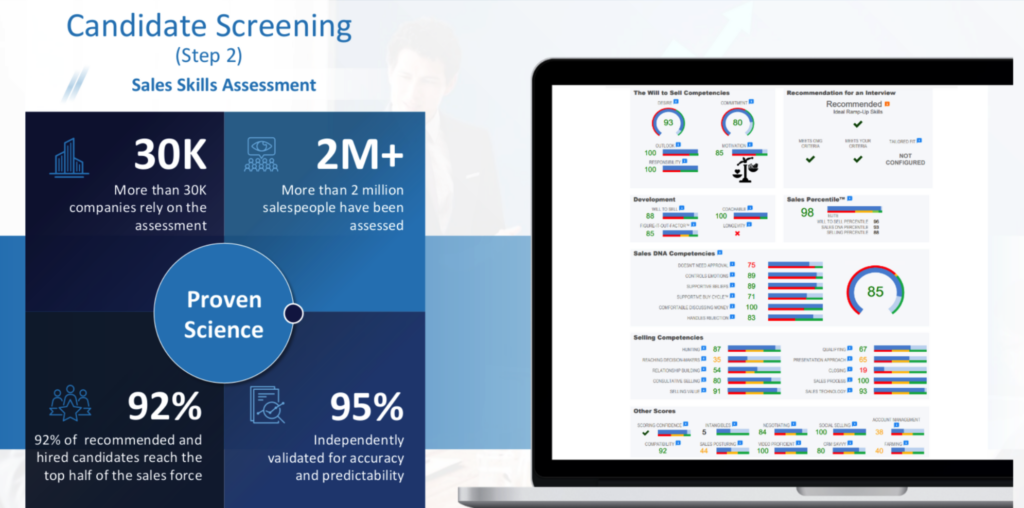Once you’ve narrowed your SaaS sales candidate pool down to a select group of individuals, it’s time to find the best of the best. Remember that it’s not just about choosing the top candidate during SaaS sales interviews. You need to find the top candidate for your sales team.
To truly understand how they would perform in your sales environment, it’s helpful to take a competency-based approach, which involves assessing a candidate’s skills and abilities by asking questions that require specific examples that draw from past experiences.
Here’s a streamlined three-step process I suggest doing that.
Define Your Company’s Core SaaS Sales Competencies
Before you do anything else, a necessary first step is to identify what your company’s core competencies are in regard to SaaS sales.
There will likely be some overlap between most SaaS companies. HubSpot, for example, lists the top four competencies as being:
- Foundational sales knowledge
- Communication skills
- Willingness to learn
- Attention to detail
They also provide a list of other core competencies that are extremely important.

Here at HireDNA, we analyze SaaS sales candidates across 21 selling competencies — some of which include coachability, the ability to hunt, the drive to succeed, and the ability to close deals.
The bottom line is that each sales team will be a little different. So you’ll want to figure out the exact traits and characteristics you want to focus on above all else.
Create a Top 10 List of Core Saas Sales Competencies
After defining your specific core SaaS sales competencies, the next step is to determine which 10 are the most important and rank them in order of importance.
Here’s an example of what that may look like:
- Foundational sales/product knowledge
- Communication skills
- Willingness to learn
- Coachability
- Ability to hunt
- Relationship-building
- Negotiating skills
- Ability to handle rejection
- Drive to succeed
- Emotional intelligence
Remember that you can always change your core competencies, as well as their order later on. But having a tangible list like this should help you articulate which competencies hold the most value and will help guide you on the next step.
Create Relevant Interview Questions Based on Core SaaS Sales Competencies
Once you have a definitive list of core SaaS sales competencies, it’s time to use them to develop a series of interview questions that your team can reference.
“Competency-based interviews rely on the assumption that past successful or unsuccessful job scenarios provide evidence of compatibility with a position’s requisites,” explains Job Test Prep.
By asking targeted competency-based questions that require candidates to call upon their work experience, it allows you to better understand their thought process, how they would act if hired on to your SaaS sales team, and generally gauge their overall abilities. This isn’t to say that competency-based interviews tell 100% of the story, but they’re fairly accurate for the most part and should help you forecast how successful a potential candidate would be.
Here are a few examples based on the top 10 list above.
When assessing foundational sales/product knowledge, you could ask:
- How do you learn and stay informed about the features of a SaaS product you’re selling?
- Tell me about a specific time when you used your knowledge to close a deal.
When assessing relationship-building, you could ask:
- Can you tell me about a time when you successfully built a strong relationship with a SaaS customer, and how did you leverage that relationship to instill loyalty?
- What were the specific steps you took and the challenges you faced along the way?
When assessing a rep’s ability to handle rejection, you could ask:
- Can you tell me about a particular time when you faced an especially difficult rejection?
- How did you overcome it?
Repeat this process until you have a fully fleshed-out list of competency-based questions for SaaS sales interviews that look something like this.
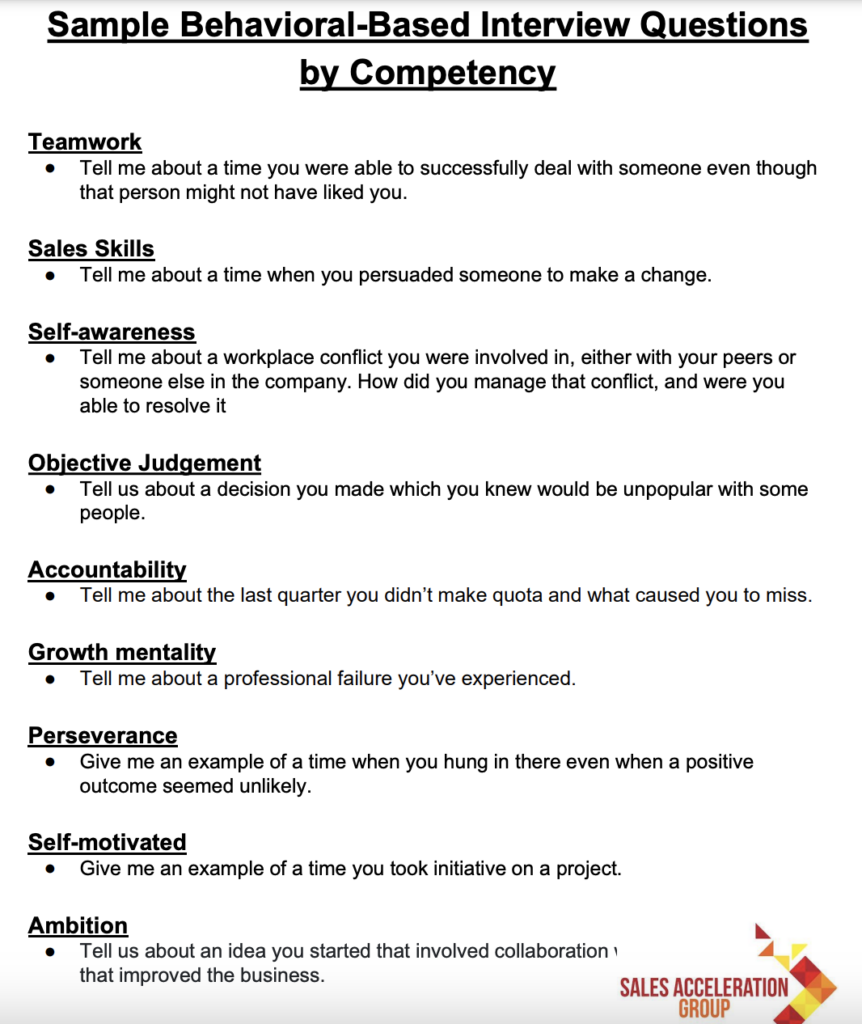
Integrate Core Competency Questions into Interviews
At this point, the heavy lifting is over, and you should have a tangible list of questions that zero in on essential SaaS sales competencies. It’s just a matter of providing your recruiting team with a list of those questions and having them use them during interviews.
This offers two main benefits, with the first being that it allows you to efficiently learn about each SaaS sales candidate’s core competencies and determine whether or not they’re a good fit for your company.
The other key benefit is that it allows you to standardize your sales hiring process, which is extremely important to finding elite candidates.
“In non-standardized interviews, there may be a set of questions guiding the conversation, but there is little consistency across the experience for candidates,” writes The Harvard Business School. “Often this is where unconscious bias can manifest itself and candidates don’t have the same opportunity to effectively tell their story and showcase their fit for a role.”
“In a standardized interview, each candidate is asked the same questions in the same order. HBS Professor Francesca Gino notes that this type of interview process helps to reduce bias by focusing on the factors that have a direct impact on performance.'”
Not to mention that it makes your interviewer’s life easier when they have a list of questions for quick reference to guide them through the hiring process. Rather than blindly feeling their way through an interview, having a sense of structure like this should help make things go smoother.
Wrapping Up
Traditional interviewing can tell you a lot about a candidate. But in my opinion, one of the best ways to truly get a sense of how someone would perform in your unique SaaS sales environment is by taking a competency-based approach.
Fortunately, this is pretty straightforward and simply involves a three-step process of 1) identifying which core competencies are most essential to SaaS sales success, 2) creating relevant questions around those competencies, and 3) effectively integrating those questions into your interviewing.
If you’re looking to find truly elite SaaS sales reps, I suggest using the OMG sales candidae assessment. Backed by science and predictive validity, this assessment targets critical sales competencies, and 91% of recommended and hired candidates have positive on the job performance.

